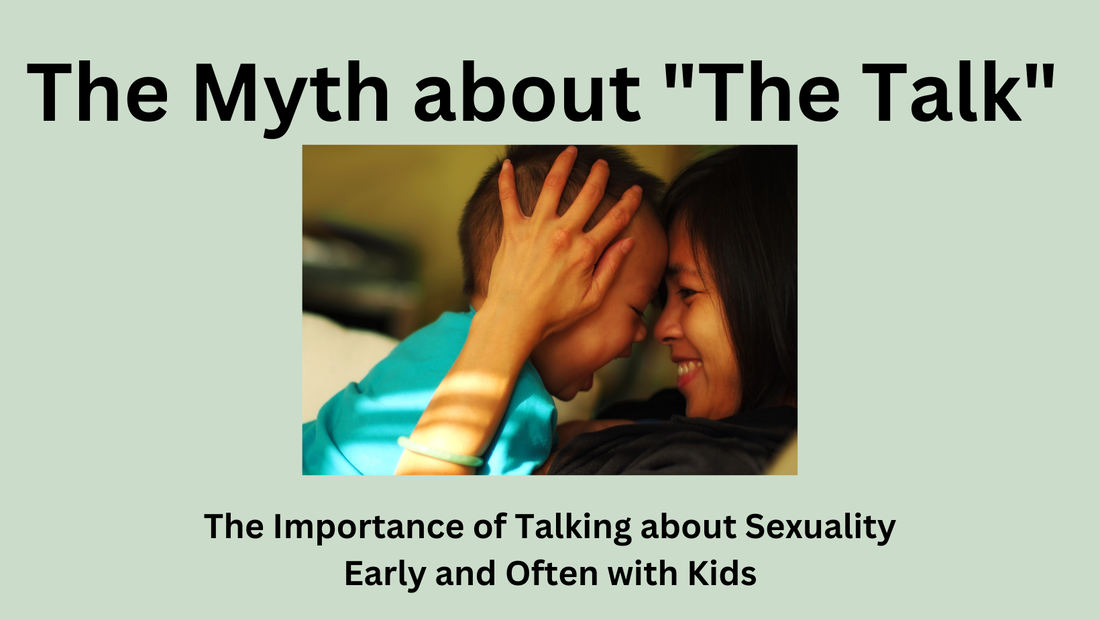|
Guest post by Lauren Barineau The Myth of “The Talk:” The Importance of Talking about Sexuality Early and Often with KidsFor most parents, the thought of having “the talk” with their kids is overwhelming. Not only do we feel unprepared to navigate conversations about sexuality, we worry that we’re sharing more information than our kids can handle, or that we’re giving permission for kids to engage in specific behaviors. But, research indicates that the more frequently and openly we talk about sexuality with kids, the healthier they are. Talking with kids early, often, and in age-appropriate ways about topics related to sexuality establishes you as a trusted adult and enables you to shift from having just “the talk” to having many talks through childhood. This helps kids process their attitudes and values around sex, informs their decisions as they get older, and removes feelings of stigma and shame. Below are some general tips for proactively starting conversations with your kids. So, what will you say today? Sexuality is more than sex.Although it’s likely that we grew up thinking about “sex ed” as the mechanics of reproduction and birth (and maybe how to prevent it), sexuality is much more than acts of intercourse. Instead, it’s a big umbrella under which information about boundaries, consent, body safety, friendships, romantic relationships, body image, gender roles, sexual orientation (and more!) falls. In our digital age, this even expands to sexting, pornography, and digital communication. And, starting the conversation about body parts and personal boundaries in small ways with your little kid helps you navigate conversations about asking for consent for sex as they grow into your big kids. Avoiding the conversation is saying something about sex.Many people are uncomfortable talking about sex with their kids - it’s understandable! Common reasons for this are that adults are worried they don’t know the answer or that kids aren’t developmentally ready. When you choose not to have critical conversations, kids are still learning about sex, but they’re learning that it’s something that your family doesn’t talk about, or that it’s shameful or bad. When parents avoid discussing sex, kids and teens feel closed off from important and reliable information and will likely seek information from less reliable sources. Start small and gain confidence.Committing to having positive and proactive conversations about sex doesn’t mean that you have to start at the deep end. Start where you feel comfortable, whether it’s explaining diverse families, or that most boys have a penis and most girls have a vulva, or perhaps that it’s okay to say no to hugs and kisses from family members you don’t want. The more often you talk, you’re letting your child know that you’re a trusted adult they can seek out for answers and you’re building your own muscle for more complicated conversations as kid’s get older. All conversations about sexuality, even small ones, normalize talking about it in safe and positive ways. Clarify your own values about sex.We all have values about sex (and not just about when it’s the right time for the first time). Talks about sexuality between families should include values and facts. It’s important to think about your sexuality values and consider how you might communicate those values to your kids. For example, have you ever considered how you feel about body hair removal? Who should remove hair? At what age? From which body parts? All of those answers reflect your values about that behavior. Also consider what influenced your values. It may be that they were based on generational differences, religion, or are rooted in bias about gender, sexuality, or race. Once we know what we believe and why, it becomes easier to share our values with our kids.
0 Comments
Leave a Reply. |
AuthorArielle Haughee is the owner and founder of Orange Blossom Publishing. Categories
All
|
Proudly powered by Weebly



 RSS Feed
RSS Feed